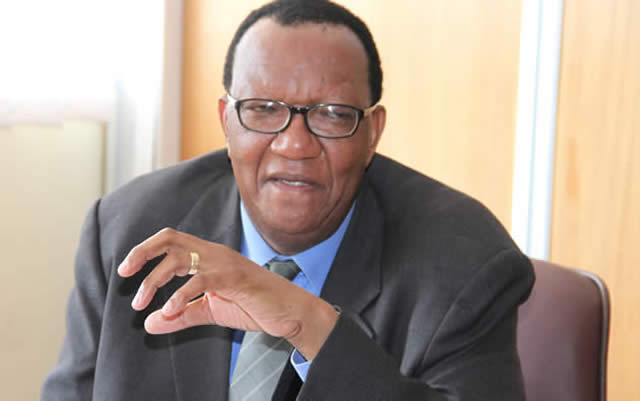Tobacco deliveries hit 192 million kg

Elita Chikwati : Agriculture Reporter
Tobacco deliveries have surpassed 191,7 million kilogrammes as the official marketing season closes tomorrow. Last season farmers sold 198 million kilogrammes. Latest statistics from the Tobacco Industry and Marketing Board show that tobacco growers have sold 191,7 million kilogrammes of the flue cured tobacco worth $564 million. This is an increase of four percent from the 183 million kilogrammes worth $540 million that were sold during the same period last year.Contract sales have the largest share of sales with 156,3 million kilogrammes worth $473 million having been sold at the contract floors while 35,3 million kilogrammes worth $90,7 million were sold through the auction floors.
The 2016 selling season has been described by farmers and other stakeholders in the tobacco industry as challenging.
The 2015/16 season was characterised by drought, which resulted in farmers planting late and the crop heavily affected by the dry spell.
Agriculture, Mechanisation and Irrigation Development Minister Dr Joseph Made applauded tobacco growers for being resilient by producing high volumes of the crop under harsh weather conditions experienced last season.
“We suffered record breaking high temperatures for most of the season and rainfall at best was intermittent in most areas. Effective rainfall only came in December and as a result many growers had to replant particularly those without irrigation. This resulted in delays in the start of the selling season.
“Effectively, tobacco injects foreign currency into the economy during the tobacco marketing season with close to a billion United States dollars having been available to purchase the crop produced during the 20-15/16 season. Any factors that affect the growing of tobacco, thus would have a very serious impact on the national economy,” he said.
Most farmers expressed satisfaction over prices offered by buyers this season although some complained about the continuous ceiling on the highest price at the auction floors which has remained at $4,99 per kg for the past years.
Farmers also expressed anger at the resurfacing of corrupt activities at the floors and felt TIMB had the duty to protect them and also put an end to the negative trend.
TIMB chairperson, Mrs Monica Chinamasa challenged farmers to report corrupt cases.
“Farmers are not willing to come and report their cases and just suffer in silence. We encourage farmers not to pay anyone and also to report to the police or TIMB officials when approached by unscrupulous people,” she said.
The 2015/16 season also saw the introduction of the financial inclusion to tobacco farmers. Instead of getting their money in cash, this season growers were paid through bank accounts.
This created challenges during the early days as some farmers did not have bank accounts while other banks experienced cash challenges.
The Reserve Bank of Zimbabwe had to elevate tobacco farmers to corporate clients eligible to withdraw up to $10 000 per transaction.
The Tobacco Research Board expressed concern over the knowledge gap among tobacco farmers which has seen most smallholder farmers producing a low quality crop that fetches low prices on the market.
TRB chairperson Dr Millicent Mombeshora said tobacco plays a crucial role in improving livelihoods of farmers but most of the producers lack adequate knowledge on the crop.
“It is evident that there is a knowledge gap among our growers. Many of them have taken up tobacco production without undergoing any training in best practices so as to produce high quality crop that obtains highest possible yields.
“The Kutsaga varieties have yield potential of over five tonnes per hectare but most small scale farmers are getting less than one tonne per hectare,” she said.
She said Kutsaga Tobacco Improved Production Sites were created to address the issue of knowledge gap.
TRB general manager Dr Dehlia Garwe said the institution had come up with different training opportunities to equip farmers with knowledge on tobacco production.
She said TRB was participating at field days, grower/TRB discussion forum field demonstration and was also engaging farmers at auction and contract floors.
“Growers are also trained in the field on operations that will be occurring in the tobacco calendar at the time,” she said.










Comments